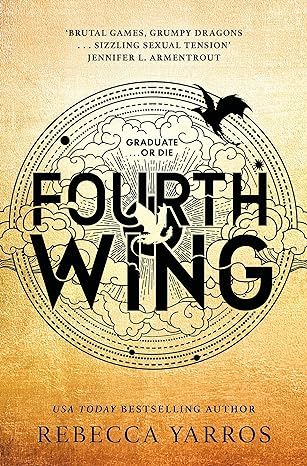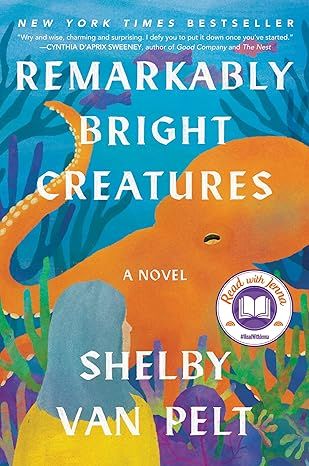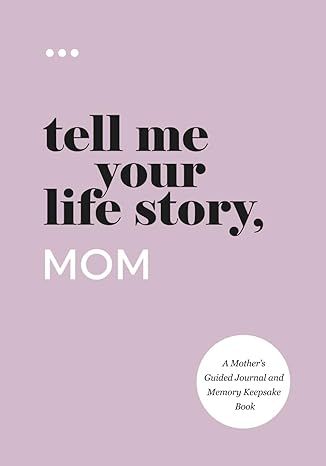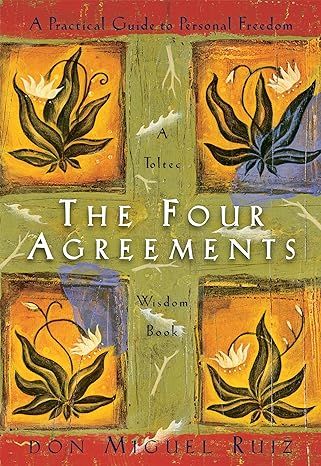The Four Agreements: A Practical Guide to Personal Freedom (A Toltec Wisdom Book)
4.7
-
114,120 ratings
In The Four Agreements, bestselling author don Miguel Ruiz reveals the source of self-limiting beliefs that rob us of joy and create needless suffering. Based on ancient Toltec wisdom, The Four Agreements offer a powerful code of conduct that can rapidly transform our lives to a new experience of freedom, true happiness, and love.
• A New York Times bestseller for over a decade
• An international bestseller published in 52 languages worldwide
“This book by don Miguel Ruiz, simple yet so powerful, has made a tremendous difference in how I think and act in every encounter.” — Oprah Winfrey
“Don Miguel Ruiz’s book is a roadmap to enlightenment and freedom.” — Deepak Chopra, Author, The Seven Spiritual Laws of Success
“An inspiring book with many great lessons.” — Wayne Dyer, Author, Real Magic
“In the tradition of Castaneda, Ruiz distills essential Toltec wisdom, expressing with clarity and impeccability what it means for men and women to live as peaceful warriors in the modern world.” — Dan Millman, Author, Way of the Peaceful Warrior
Kindle
$7.74
Available instantly
Audiobook
$0.00
with membership trial
Hardcover
$29.90
Paperback
$7.74
Ships from
Amazon.com
Payment
Secure transaction
ISBN-10
9781878424310
ISBN-13
978-1878424310
Print length
160 pages
Language
English
Publisher
Amber-Allen Publishing, Incorporated
Publication date
November 06, 1997
Dimensions
5.06 x 0.5 x 7.25 inches
Item weight
2.31 pounds
Popular Highlights in this book
Being impeccable with your word is the correct use of your energy; it means to use your energy in the direction of truth and love for yourself.
Highlighted by 42,170 Kindle readers
Real love is accepting other people the way they are without trying to change them.
Highlighted by 40,948 Kindle readers
It is always better to ask questions than to make an assumption, because assumptions set us up for suffering.
Highlighted by 38,499 Kindle readers
Product details
ASIN :
1878424319
File size :
2450 KB
Text-to-speech :
Enabled
Screen reader :
Supported
Enhanced typesetting :
Enabled
X-Ray :
Enabled
Word wise :
Enabled
Editorial Reviews
“This book by don Miguel Ruiz, simple yet so powerful, has made a tremendous difference in how I think and act in every encounter.” — Oprah Winfrey
“Don Miguel Ruiz’s book is a roadmap to enlightenment and freedom.” — Deepak Chopra, Author, The Seven Spiritual Laws of Success
“An inspiring book with many great lessons.” — Wayne Dyer, Author, Real Magic
“In the tradition of Castaneda, Ruiz distills essential Toltec wisdom, expressing with clarity and impeccability what it means for men and women to live as peaceful warriors in the modern world.” — Dan Millman, Author, Way of the Peaceful Warrior
Sample
INTRODUCTION
The Smokey Mirror
Three thousand years ago, there was a human just like you and me who lived near a city surrounded by mountains. The human was studying to become a medicine man, to learn the knowledge of his ancestors, but he didn’t completely agree with everything he was learning. In his heart, he felt there must be something more.
One day, as he slept in a cave, he dreamed that he saw his own body sleeping. He came out of the cave on the night of a new moon. The sky was clear, and he could see millions of stars. Then something happened inside of him that transformed his life forever. He looked at his hands, he felt his body, and he heard his own voice say, “I am made of light; I am made of stars.”
He looked at the stars again, and he realized that it’s not the stars that create light, but rather light that creates the stars. “Everything is made of light,” he said, “and the space in-between isn’t empty.” And he knew that everything that exists is one living being, and that light is the messenger of life, because it is alive and contains all information.
Then he realized that although he was made of stars, he was not those stars. “I am in-between the stars,” he thought. So he called the stars the tonal and the light between the stars the nagual, and he knew that what created the harmony and space between the two is Life or Intent. Without Life, the tonal and the nagual could not exist. Life is the force of the absolute, the supreme, the Creator who creates everything.
This is what he discovered: Everything in existence is a manifestation of the one living being we call God. Everything is God. And he came to the conclusion that human perception is merely light perceiving light. He also saw that matter is a mirror — everything is a mirror that reflects light and creates images of that light — and the world of illusion, the Dream, is just like smoke which doesn’t allow us to see what we really are. “The real us is pure love, pure light,” he said.
This realization changed his life. Once he knew what he really was, he looked around at other humans and the rest of nature, and he was amazed at what he saw. He saw himself in everything — in every human, in every animal, in every tree, in the water, in the rain, in the clouds, in the earth. And he saw that Life mixed the tonal and the nagual in different ways to create billions of manifestations of Life.
In those few moments he comprehended everything. He was very excited, and his heart was filled with peace. He could hardly wait to tell his people what he had discovered. But there were no words to explain it. He tried to tell the others, but they could not understand. They could see that he had changed, that something beautiful was radiating from his eyes and his voice. They noticed that he no longer had judgment about anything or anyone. He was no longer like anyone else.
He could understand everyone very well, but no one could understand him. They believed that he was an incarnation of God, and he smiled when he heard this and he said, “It is true. I am God. But you are also God. We are the same, you and I. We are images of light. We are God.” But still the people didn’t understand him.
Read more
About the authors
Don Miguel Ruiz
Don Miguel Ruiz is a renowned spiritual teacher and internationally bestselling author of the “Toltec Wisdom Series,” including “The Four Agreements,” “The Mastery of Love,” “The Voice of Knowledge,” “The Four Agreements Companion Book,” “The Circle of Fire,” and “The Fifth Agreement.” The Toltec Wisdom books have sold over 12 million copies in the United States, and have been published in 46 languages worldwide.
don Miguel has spent the past three decades guiding students to personal freedom through his profound insights regarding the nature of human reality. His newest book, THE ACTOR (Ediciones Urano) written with Barbara Emrys was published November 3rd, 2020.
The youngest of thirteen children, don Miguel Ruiz was born in rural Mexico to parents who were healers and practitioners of ancient Toltec traditions. As a young adult, he graduated from medical school in Mexico City and practiced neurosurgery with his older brother in Tijuana. A near-fatal car crash forever changed the direction of his life, however, causing him to leave medicine and to examine the essential truth about life and humanity. With his mother’s help, and through her ancestral teachings, he discovered his own path to awareness, which evolved into a deep understanding of the physical universe and the virtual world of the mind.
Combining Toltec mythology and scientific perspectives, don Miguel has been able to merge ancient wisdom with modern physics and practical common-sense, forging a new philosophy for seekers of truth and personal authenticity. His landmark bestselling book, The Four Agreements, contains practical steps for long-term, personal transformation and has been read by millions around the world.
Read more
Reviews
Customer reviews
4.7 out of 5
114,120 global ratings
I'm Me Me
5
This is not "new age" self help book! This book is based on modern linguistic theory and philosophical precepts.
Reviewed in the United States on April 25, 2017
Verified Purchase
I should start off by stating my background. I am an undergrad student of philosophy and linguistics, a branch of the humanities. I also deeply love this series of books because of its obviousness and simplicity. It has personally helped me triumph over many, many challenges. This is why I decided to write a review here.
There is a huge tradition of skepticism in linguistics, especially about how language is used in various cultures to create belief systems. A belief system is basically a set of instructions inside your brain based on language. These instructions help you navigate the stressful world around you so you can survive. We are psychologically wired to think our belief systems are accurate and experience deep stress if we find them to be inaccurate.
The trouble is, our belief systems are ALWAYS inaccurate. Yes, I used the word "always" for a reason.
Without going deeply into the study of philosophy and linguistics, I will give you an overview here:
Philosophy - When you study philosophy, you study belief systems about how the world works and explore important questions like "is there a God?" or "What is consciousness." You may not be surprised to find out that philosophy majors have not come up with answers to these questions because there is always a case where we are going to be wrong or have a counter argument. Much of the study of philosophy is the collection of vocabulary words to describe beliefs. They even have a mathematical component called propositional logic, where one takes sentences and reduces them to symbols and creates "proofs" but even prop-logic is under fire from academics for its complete inability to predict anything. In other words, it isn't the answer either.
Linguistics - When you study words and language, you realize that all our beliefs are based on language and this language can never "touch reality" in that language is just an arbitrary description of reality, posing as real. I believe Miguel Ruiz must have taken a linguistics course as well--as his first agreement attests to the power of language. The four agreements pulls heavily from Saussure and Derrida. Both Saussure and Derrida (and many, many others) did work on how we form ideas in our heads based on language. The gist is this: we have something called a "symbol" in our brain which is composed of two parts: the word and the visual representation of the object (look up semiotics for further detail). These symbols are in our mind and work together to form meaning, then belief. The unfortunate thing is that they are entirely made up. It isn't real. Our ideas of it aren't real.
If you really want a deeper understanding on how linguistics has saturated our belief systems I recommend reading some of their academic essays or get Rivkin and Ryan's literary theory books. They are excellent and will take you further down the rabbit hole. Most of the essays are dense but worth the effort!
To simplify: scientists and academics in the millions have tried and tried and tried to find "the true belief" for thousands, maybe tens of thousands of years and we have not yet arrived at any truth. Because of domestication, we think other people have it, but they don't! "Truth" is defined as that which has the most predictive power. So far, mathematics, geometry, and physics has the most predictive power. Our belief systems simply do not.
So any beliefs about yourself can be true and they can also be false. We can't know. So why not pick something positive? If no one knows anything, then how can you even know anything?
But you don't need to study this yourself. All you have to do is think back to your past self, let's say ten years ago. Did that person have a belief system that you now consider to be faulty? How is that possible? What about your future self? Will that person believe you have a faulty belief system? Probably! How is this possible? How can you be SO WRONG? Is it because you "haven't learned?" I highly doubt it!
But we have to be right! We ARE RIGHT! At least we think we might be . . . maybe?
The need to be right is so ingrained within us that we create a huge drama when someone contradicts our beliefs. We end relationships over it! We storm out! We write angry twitter updates.
HOW THIS BOOK HAS PERSONALLY HELPED ME:
- No one person's opinion will ever again have the power to limit what I can do, even if this person is an authority figure
- No one group's opinion will ever again have the power to limit what I can do
- No one has a clear idea of who or what I am, not even me!
- When people talk, they are telling stories. I don't have to argue. I don't have to fight. I simply have to listen. WOW!
- I cannot comprehend another person's dream. I can't mind read. I can't assume. I know nothing of their inner workings.
- Even scary, aggressive people are just telling stories.
- I no longer have to feel ashamed about who I am or what I've done or where I'm going. It's not my job to assign a story to my life, or a judgment.
- I no longer have to pretend to be something or hustle to gain love. I just need to love who is willing to love back. It's so simple.
- I take all gurus, religions, indictments and gossip with quite a high level of benevolent skepticism, which allows me to be free from the fear that goes along with these stories.
- I don't take myself as seriously as I used to.
Probably the most valuable of all . . .
- I have a deep compassion for all people. We are all just stuck here together, trying our hardest and doing our best. I don't have to hate someone because their best wasn't up to some story I tell myself. I don't' have to insist they believe in my story. I can just smile and listen and do what I can.
Read more
3 people found this helpful
Kristy A. Weber
5
A transformative guide
Reviewed in the United States on May 27, 2024
Verified Purchase
Don Miguel Ruiz’s “The Four Agreements” is a transformative and enlightening guide that distills ancient Toltec wisdom into practical principles for modern life. This book has resonated deeply with readers around the world, offering a path to personal freedom and true happiness.
The book is structured around four agreements, which serve as a foundation for living a more fulfilling and authentic life:
- Be Impeccable with Your Word: Ruiz emphasizes the power of words and how they shape our reality. This agreement encourages honesty, integrity, and positivity in our speech, helping us to build trust and create a positive impact on ourselves and others.
- Don’t Take Anything Personally: This agreement teaches us to let go of the need for approval and not to be affected by others’ opinions or actions. Understanding that others’ behaviors are a reflection of their own reality, not ours, allows us to maintain inner peace and self-confidence.
- Don’t Make Assumptions: By avoiding assumptions and seeking clarity, we can prevent misunderstandings and unnecessary suffering. This agreement promotes open communication and the courage to ask questions and express our true feelings.
- Always Do Your Best: Recognizing that our best effort may vary from moment to moment, this agreement encourages us to strive for personal excellence without self-judgment. Doing our best in every situation helps us live without regrets and fosters self-acceptance.
Ruiz’s writing is clear and accessible, making profound concepts easy to understand and apply. The practical advice is complemented by insights into the human condition and the ways in which societal conditioning can limit our potential.
“The Four Agreements” is not just a book to read once; it is a lifelong companion that provides ongoing inspiration and guidance. Each time readers revisit the agreements, they find new layers of meaning and relevance to their current life circumstances.
Overall, “The Four Agreements” is a powerful and essential read for anyone seeking to improve their quality of life and achieve personal freedom. Its timeless wisdom and practical advice make it a book that will continue to inspire and uplift readers for generations to come. Don Miguel Ruiz’s work is a beacon of light in the journey toward self-discovery and personal growth.
Read more
7 people found this helpful
Brooklyn sweetheart
5
LIFE CHANGING!!!!!
Reviewed in the United States on June 3, 2024
Verified Purchase
As simplest as this... if you open your mind and heart, this book will change you life for the better. 3 days in and I feel different and I'm thinking different. If you purchase it you won't regret it. I have since now have purchaseD this book 3 times along with two of Mr. Ruiz's other books just because I believe wholeheartedly that it will do good for my love ones. I am so grateful for this book.
Read more
Susan
5
A timeless guide to personal freedom!
Reviewed in the United States on March 30, 2024
Verified Purchase
'The Four Agreements: A Practical Guide to Personal Freedom' is a renowned self-help book by Miguel Ruiz, a Mexican author and spiritual teacher. Published in 1997, the book has sold over 8 million copies worldwide and has been translated into 48 languages.
The book draws inspiration from the wisdom of the Toltec tradition, an ancient Mesoamerican culture. Ruiz presents four agreements that he believes can lead to inner peace, happiness, and success.
The Four Agreements
-
Be Impeccable with Your Word: This means speaking with integrity and honesty. Avoid gossip, criticism, and negativity. Use your words to uplift, inspire, and create harmony.
-
Don't Take Anything Personally: Realize that others' actions and words are not about you. They are a reflection of their own perceptions and beliefs. Don't let their opinions define you or make you feel less worthy.
-
Don't Make Assumptions: Communicate clearly and ask questions when necessary. Assumptions can lead to misunderstandings and unnecessary hurt. Trust in clear communication to avoid confusion.
-
Always Do Your Best: Strive to give your best in every situation, regardless of the outcome. By doing your best, you will gain self-respect and fulfillment, even if the results are not always perfect.
Practical Implications
Applying these agreements can have profound effects on our daily lives. By being impeccable with our words, we create a positive and supportive environment. When we avoid taking things personally, we liberate ourselves from the weight of others' judgments and opinions. Not making assumptions allows us to maintain clear and harmonious relationships. And by always doing our best, we tap into our potential and build a strong foundation for personal growth.
Path to Personal Freedom
Ruiz believes that by adopting these four agreements, we can break free from the limitations imposed by our own minds and the expectations of others. We can create a life of authenticity, acceptance, and joy.
Conclusion
'The Four Agreements' is a timeless guide to personal freedom. Ruiz's wisdom is accessible and applicable to people from all backgrounds and walks of life. By embracing these simple yet profound agreements, we can transform our relationships, our self-perception, and ultimately, our lives. By choosing to live in harmony with these agreements, we open ourselves to a world of possibilities and personal fulfillment.
Read more
28 people found this helpful
J. M. Alexander
4
A Trip Into Mysticism
Reviewed in the United States on July 4, 2015
Verified Purchase
The Four Agreements by Don Miguel Ruiz
&
The Fifth Agreement by Don Miguel Ruiz and Don Jose Ruiz
I decided to “review” or “summarize” these books together because the Fifth Agreement is very much a continuation of the first book, and in fact reiterates much of the earlier text. Both are based on the philosophy of the Toltec, ancient people of southern Mexico who were known as women and men of knowledge.
Before delving into the books, I should acknowledge that I found then somewhat difficult. Although I have read a great many of what I would call “spiritual” books and wrings in the recent years, these readings, although similar, were a bit more difficult to fully digest. The author at times anticipates such problems on the part of the reader, and is indeed accurate in that regard.
The Toltecs were not a race or tribe, or nation, but scientists and artists formed to explore and conserve the spiritual knowledge and practices of the “ancient ones”. They came together as masters (naguals) and students at Teotihuacan, the ancient city of pyramids outside Mexico City and known as the place where “Man Becomes God”. The Toltec recognize that some 3000 years ago a human studying to be a medicine man woke to the realization that everything is made of light and that all that exists is one living being, and that light is the messenger of life because it is alive and contains all information. He called the stars the tonal and the light between the stars the nagual, and knew what created the harmony between the two is life or intent. He saw himself in everything- in every human, every animal, every tree, in the water, the clouds and the earth. As I read the book, this seeing, this realization, is the truth, is pure love and pure light. It is this truth that we much search for. But why must we search if such truth is everywhere?
We must search because we have lost the truth. When we are born devoid of language, we are the truth–our presence is a miracle. We feel and see what is, without interpretation or judgment. But, as we grow, we are what the author calls “domesticated”, just as animals are. The truth that we feel is replaced by symbols-words- that are mere illusions, that are opinions grafted onto objects and feelings. We apply our attention– the ability to discriminate and focus only on what we want to perceive- on these symbols. As children we believe what adults say, especially our parents, and our world becomes a dream, a reality built on symbols from others, not the silent feelings and observations that we experienced as infants. And this learned reality-our dream- tells us how to behave in society; what to believe and not believe; what is acceptable and not acceptable; what is good and bad; right and wrong; beautiful and ugly. We are imperfect because we do not measure up to an image of perfection that has been imposed on us by others. And we accept such law and structure by a system of reward for doing what is “right” and punishment for doing what is “wrong”. This acceptance reflects a multitude of agreements we have made with our world. We are judged and punished and then punish ourselves for bad behavior. We become victims who carry guilt for such failures, and are punished again and again whenever we are reminded, or remind ourselves of such failures. We live in a dream ruled by fear and filled with emotions of anger, jealousy, envy and hate. We must be right and prove others wrong. Our mind and our world become a fog–a mitote- a dream where a thousand people talk at once and no one understands. The author feels that, as a result, we are living in a dream of hell. We then search for the truth, for a way out of this hell. And yet, the truth is already within us, we don’t have to search, we just have to uncover what is part of us already, as it was when we were born.
To escape our dream of hell, we must break the old agreements that are fear based and reclaim our personal power. We must create a new dream, our own dream- our personal dream of heaven. The author suggests four basic agreements that you must make with yourself to reclaim your own power and find a heaven on earth, a life of joy and fulfillment.
The First Agreement- Be Impeccable With Your Word. The author feels that this first agreement is the most important and powerful. I noticed a few things about the wording. First, he uses the singular “word”, rather than “words”. I think perhaps this is in deference to the use of such term in the bible where John, speaking of creation, says “In the beginning was the word, and the word was God, and the word is God.” Through words you express your creative power. But he obviously means the plural, that your use of language must be impeccable. The use of “impeccable” is also interesting. Our common definition of “impeccable” is faultless or flawless. But it also means incapable of sin or without sin. It is this meaning that the author employs. He feels that a sin is anything that goes against yourself, and being impeccable is not gong against yourself, taking responsibility for your actions, but not judging or blaming. He says that if one loves him or her self, then he or she will express that love in interaction with others, and will thus be impeccable with the word, because such word, such action, will produce a like reaction. He contrasts words coming from love with those coming from what he calls black magic. He feels that gossip is the worst form of black magic, for it is judgmental language about others, even those we do not know. It is emotional poison that we teach to our children and friends and loved ones through our use of such criticism. The word is too often used to blame, to criticize, to find guilt and destroy. He gives the simple example of a child being told by her mother to shut up her singing because her voice was “ugly”. The child obviously agreed with her mother, and thus made an agreement with herself not to sing any more. These are the type of agreements that we make in life that are harmful and destructive, that lead us into our dream of hell. Instead, when you are impeccable with your words, they are no longer fertile ground for gossip and criticism, but for love. And as you use such words, first by expressing love for yourself, you break all the many agreements that make you suffer, and begin to build your own dream of heaven on earth.
I don’t read “impeccable” to mean absolutely honest, for there are times when being absolutely honest could be counter to your words coming from love.
The Second Agreement- Don’t Take Anything Personally.
This is much easier said than done and I also think that the author assumes that one is practicing impeccability in their word before adopting this. He basically feels that people take things personally because we assume that things said are truly about us and that we are prone to believe them. In fact, he feels that people do not do or say things because of us, but because of themselves. Also, whatever they do or say is a product of their own belief system, of their own personal dream. Thus, what they may think about me is not about me but is about them. Instead of accepting this, we resort to the need to be right, and show the other wrong, so we magnify the power of their words or deeds.
If instead we always act from a sense of love–the impeccability of our word- then if someone is mad at me, then I know that he or she is mad at him or herself and I am just the excuse for their anger. When you stop taking things personally you can keep your heart open and not be harmed. You will not need to trust in what others do or say, but only trust yourself to make responsible choices. And you must remember that neither praise nor criticism is to be taken personally because it is not about you, but the speaker.
As I said at the outset of my comments on this Agreement, I think, in discussing this Agreement, that the author assumes that he is impeccable with his word. If not, then how could he say that when someone gets mad at you they are mad at themselves? This may still be true even if you were not using your word impeccably, but it would be harder to accept, especially since, in his discussion of impeccability, the author says that one must take responsibility for his actions. Wouldn’t this mean that when we are less than impeccable that we must accept some consequence, but not punish our self endlessly? Couldn’t someone’s anger be about us if our word was less than impeccable, but instead filled with the black magic mentioned by the author? I raise these questions in my mind because at times, as I read through this, it sounds as if one can “get a pass” for less than sterling behavior because he need not take others reactions personally. I don’t think this is the author’s message, but it could be read into some of the philosophy.
The Third Agreement- Don’t Make Assumptions
The author starts off his discussion with this statement:
“All the sadness and drama you have lived in your life was rooted in making assumptions and taking things personally.”
Although I would question the use of the word “all” (I have a hard time with such broad statements like “all” or “none” or“always” or “never”), I basically agree with his statement, especially as it concerns emotional reaction to others. (True sadness from the passing of a child or similar “objective” tragedy is hard to relate to assumptions or taking things personally) I have found that people often assume my meaning, and sometimes take offense at something that was never intended to harm. They probably misunderstood, but, as the author notes, were afraid to ask for clarification and therefore filled in any uncertainty with an assumption. I don’t know exactly why we are afraid to ask for clarification, maybe it roots back to those days when we were reluctant to ask questions in school. Maybe it a fear of being wrong, even if it is a subjective response to another. I don’t know why we do such things, but know that we do, and that it causes great and unnecessary pain.
I think these two agreements about taking things personally and making assumptions are really part of a self centeredness that “it is all about me”. We often tell people, ‘it’s not always about you” , but such words are almost in jest. In fact it is really important to realize that it isn’t always about you, especially when the assumptions made generally do assume so and lead to taking things personally. Not making assumptions would seem to be one of the easier agreements to live up to, as it only involves a little bit of inquiry. But, like any change, it requires practice. The author just suggests that you
“Make sure the communication is clear. If you don’t understand, ask. Have the courage to ask questions until you are clear as you can be, and even then do not assume that you know all there is to know about a given situation.”
Good advice.
The Fourth Agreement is About the Action of the First Three- Always do Your Best.
The author stresses always doing your best, but knowing that your best will vary from one moment to the next depending on how you feel, etc. But, whatever your state, you must always do your best–neither less nor more. Trying to do more than your best will cause you to spend unneeded energy and, in the end, your best will not be good enough. You must be motivated to do your best not by some expected reward, but by the love of what you are doing. Doing your best will help with the other three agreements and it will also make you feel better even if you suffer failures in the other three. If you keep trying to do your best you will become a master of transformation-practice will make you the master. Always doing your best requires a great deal of effort. If you break an agreement, then you must be willing to begin again the next day and try your best to keep such agreement.
In reading the author’s comments on this fourth agreement I am unsure whether he is relating “doing your best” to life in general or to the application of the other three agreements. I see his book as being primarily focused on reaching an internal contentment and happiness, not on navigating one’s way through the world at large. Admittedly, such inner contentment may well supply the path to successfully living in this rather complex world. I just find a bit of a contrast between the focus of this work and something like “Falling Upward” by Richard Rohr where he acknowledges the need to survive in the competitive world as a means of gaining some level of confidence before, in the second half of life, we are able to discard much of the baggage of the first half and seek out a more personal and spiritual contentment. Of course, this may be my misreading of both books, but, that’s what an opinion is all about. I also see a basic similarity between the two, and among other spiritual pieces that I have read. All see Western culture as imposing and espousing a very competitive, win/loose guilt ridden mentality. Such mentality may or may not be necessary for the struggles that we face, but, all my readings seem to agree that at some point our thoughts need to focus on attaining a more peaceful and inclusive level of spiritual contentment. This is the truth that the Four Agreements challenge you to seek.
The Fifth Agreement - Be Skeptical but Learn to Listen
As the author has pointed out, we learn from symbols, and these symbols do not represent the truth, which is present in everything. Symbols are people’s interpretations of objects and feelings and are not the truth, but are often lies. Thus, it is important to be skeptical, but he adds that you must then listen. When you listen carefully to others you can then understand the symbols that they are using and understand their story–their dream. Your communication improves and you can then see if what another is saying has relevance to you. You do not have to believe their story, for it is only symbols. Similarly, you do not have to believe your own story, for it is just made from your symbols. Neither story is the truth, the truth simply is, whether you believe in it or not. It doesn’t need you to believe, for it simply is.
When you listen you don’t have to form or express opinions, you merely need to listen. By merely listening you show respect for the other person’s dream, for the reality he or she has created. The author sees all persons essentially as artists who create their worlds, and they must be respected as such. When we listen and share our stories, we try to understand them and make them part or our stories if we so desire–or not. If you gain control over your symbols then what is left is the real you, and the real you, not your symbols, makes your choices.
In trying to summarize what the author is saying I find myself struggling at times to get to the crux of his message. I think that perhaps by expanding his work to this Fifth Agreement he intends to open the door to spread the wisdom of the Four Agreements to others. The first Four Agreements taught us that out symbols are not the truth, and that many of these symbols–our entire symbology as he calls it- are lies that lead us to blame and shame and guilt, to a living hell. The Four Agreements help us escape this personal hell, but perhaps there is more that we need to do.
The author expands his discussion to outline the different stages that we go through as we try to reach our heaven on earth. He calls these steps “attentions”. The first Attention is the dream we create when we first use our attention to absorb the various symbols that we learn, and we then believe such symbols represent knowledge and our reality. He calls this first attention the ordinary dream of humans or the dream of the victims. It is a dream of victims because we are the victims of the false symbols which form our reality. And our reality is not about us, it is a mirror reflecting what others expect of us and for us. You must be freed of such reality and discover your true self.
Then we reach a stage where we realize that our dream is a lie and we use the attention a second time to try to change our dream and create a new one. This is the Second Dream of Attention or the Dream of the Warriors because we now declare war against all the lies in our knowledge. It is a war against that part of our mind that makes all the choices that guide us into our personal hell. It’s a war between out true self and our belief system–what the author calls the tyrant or the big judge. In this battle we fight to throw off the belief system that causes us to repeatedly punish ourselves for past “wrongs”- the system that brings up past thoughts and punishes us over and over again. The author notes that
“Humans are the only animals on earth who punish themselves a thousand times or more for the same mistake, and who punish everybody else a thousand times or more for the same mistake.”
He instead postulates that true justice is to pay once for every mistake. As a warrior, one fights to find his true self.
The author then notes that the dream of the second attention ends when something very important happens, something called the last judgment. This is the last time that we judge ourselves or anyone else. It’s the day we accept ourselves just the way we are and everyone else just the way they are. When the day of our last judgment comes, the war in our head is over and the dream of the third attention begins. We move from the dream of the warriors to the dream of the masters. This is a dream of truth and respect and joy. It is that point where we come back to our real state, our divine self, where we fell a communion of love with everything in existence. When we learn that the symbols are not the truth, then we are left to simply enjoy life, as we did before the symbols ruled us. We experience what he refers to as a resurrection, and it allows us to be wild and free like a child, except that we have freedom with wisdom instead of innocence. At this point we don’t need to judge ourselves or others, we don’t need to be right, nor prove others wrong, and we can express love with no shame or justification and walk in the world with our heart completely open. This is the goal– a life of joy.
These books express a philosophy couched in rather mystical terms–in dreams and symbols, attention and awareness. But its message seems quite similar to other philosophies and much that is discussed in the current realm of what I will call a new spirituality. It suggests a path to find our spiritual connectedness to all of the world around us, a realization that we are each a part of everything, and that everything is a part of us. It reveals truth as not as description or a concept, but something that simply is. As the author points out, the physical nature of a chair is truth–its name is just a symbol, a symbol that can take a myriad of forms. I think he feels that a concept like goodness is also a truth that is intrinsically recognized and internal, and not a product of a value system that is imposed on us by others. As is love, and beauty. As do many others, he lauds the innocence of childhood, a time when the truth is real before we become “domesticated”. He doesn’t condemn such domestication, he just says that it is because all of us have been indoctrinated and pass that knowledge on. But, at least to me, he doesn’t recognize such conditioning as being a necessary part of that portion of our lives when we must learn to cope in our world. I think that this is the message that Richard Rohr sends in “Falling Upward”. I can easily be misreading both, but, so be it.
The striking thing, as I read numerous books and other writings, and watch speeches, is the basic consistency in the message of oneness and the need to abandon, at least temporarily, much of what we have “learned” in order to open our minds, or perhaps clear our minds, so that we can receive the gift of interconnectedness. Whether this is termed as experiencing heaven, or nirvana, or “oneness” is of no consequence. These are just names for a realization of our humble and insignificant position in a broader, more accepting, and more loving world than most of us witness day to day.
Read more
822 people found this helpful
Best Sellers

The Great Alone: A Novel
4.6
-
152,447
$5.49

The Four Winds
4.6
-
156,242
$9.99

Winter Garden
4.6
-
72,838
$7.37

The Nightingale: A Novel
4.7
-
309,637
$8.61

Steve Jobs
4.7
-
24,596
$1.78

Iron Flame (The Empyrean, 2)
4.6
-
164,732
$14.99

A Court of Thorns and Roses Paperback Box Set (5 books) (A Court of Thorns and Roses, 9)
4.8
-
26,559
$37.99

Pretty Girls: A Novel
4.3
-
88,539
$3.67

The Bad Weather Friend
4.1
-
34,750
$12.78

Pucking Around: A Why Choose Hockey Romance (Jacksonville Rays Hockey)
4.3
-
41,599
$14.84

Start with Why: How Great Leaders Inspire Everyone to Take Action
4.6
-
37,152
$9.99

Tomorrow, and Tomorrow, and Tomorrow: A novel
4.4
-
95,875
$13.99

Weyward: A Novel
4.4
-
27,652
$11.99

Tom Lake: A Reese's Book Club Pick
4.3
-
37,302
$15.74

All the Sinners Bleed: A Novel
4.4
-
12,894
$13.55

The Mystery Guest: A Maid Novel (Molly the Maid)
4.3
-
9,844
$14.99

Bright Young Women: A Novel
4.2
-
8,485
$14.99

The Wager: A Tale of Shipwreck, Mutiny and Murder (Random House Large Print)
4.5
-
28,672
$14.99

Hello Beautiful (Oprah's Book Club): A Novel (Random House Large Print)
4.4
-
79,390
$14.99

Small Mercies: A Detective Mystery
4.5
-
16,923
$10.00

Holly
4.5
-
31,521
$14.99

The Covenant of Water (Oprah's Book Club)
4.6
-
69,712
$9.24

Wellness: A novel
4.1
-
3,708
$14.99

The Art Thief: A True Story of Love, Crime, and a Dangerous Obsession
4.3
-
4,805
$14.99

The Berry Pickers: A Novel
4.5
-
14,209
$14.99

Elon Musk
4.7
-
15,272
$16.99

Just for the Summer
4.6
-
19,524
$11.99

Fourth Wing (International Edition)
4.8
-
206,495
$7.95

Remarkably Bright Creatures: A Read with Jenna Pick
4.6
-
65,556
$15.80

Tell Me Your Life Story, Mom: A Mother’s Guided Journal and Memory Keepsake Book (Tell Me Your Life Story® Series Books)
4.7
-
5,107
$11.24

